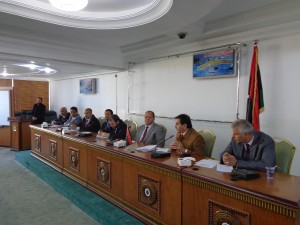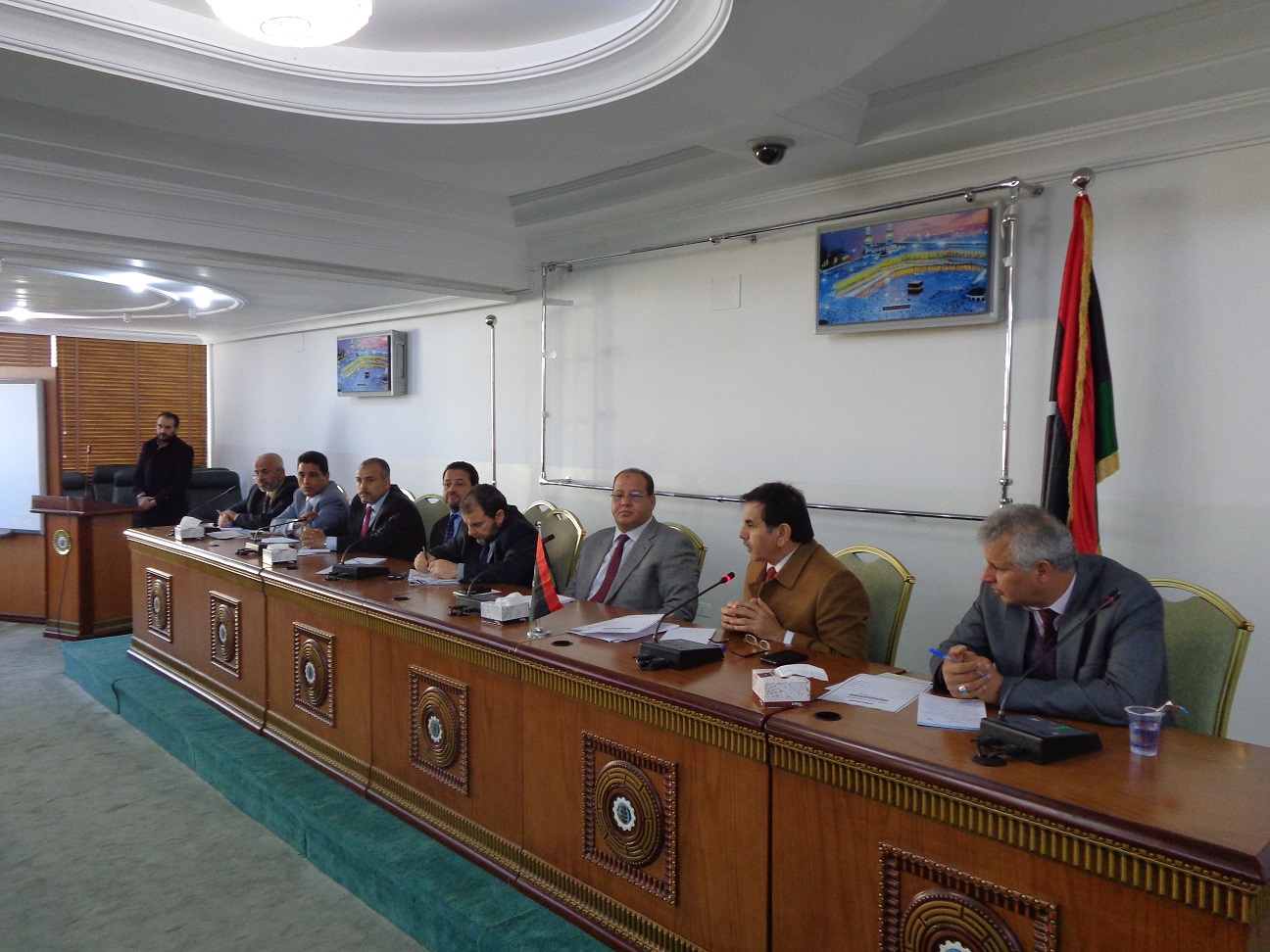By Sami Zaptia.

Tripoli, 30 January 2014:
The Tripoli Chamber of Commerce organized a seminar on Libya’s transport sector at its headquarters in . . .[restrict]Tripoli Wednesday.
The event was attended by no less than three Deputy Ministers for Transport, members of the Chambers of Commerce, the business community and specialists in the various transport sectors.
The seminar was aimed at identifying the barriers to the improvement of Libya’s transport sector and providing suggested solutions in line with the country’s target to diversify its economy away from the hydrocarbon sector and through the private sector.
Libya’s Qaddafi-era anti private sector laws were identified as the major barrier to the development of Libya’s land, air and maritime transport sectors.
These needed urgent reforms so as to free private business into expanding its role in the three transport sectors.
This reform included the need to create the adequate general business environment in Libya for entrepreneurs in order to encourage competition in the sector.
Paramount to this, participants noted, is the need to reduce the role of the state in the transport sector specifically and in Libyan business generally by privatizing the operation of transport hubs such as ports, airports and public transport. The state is not and can never be an entrepreneur, it was stressed, and could never operate sectors in an enterprising and competitive manner.
One of the most important barriers to the development of Libya’s land, air and maritime transport sectors to be identified in the seminar was the lack of availability of banking finance.
This lack of finance, it was agreed, hinders the capability of the private sector from investing and expanding in all three sectors. It was therefore seen as imperative that the banking sector laws and rules and regulations be reformed urgently to allow Libya’s cash-rich local banks to lend to the local market.
The need to implement international standards across a wide spectrum of the Libyan transport sector including in health and safety, and security of transport hubs was also highlighted.
With specific regards to the air transport sector, urgency was needed to find solutions to the causes of the EU imposed air ban on Libyan registered airlines. This was losing the locally registered airlines much revenue at a time when Libya needed this revenue most.
The idea of Libya introducing an “open skies” policies, to allow other airliners to freely fly over Libya was discussed. Participants felt that the Libyan air transport sector was not ready yet as it was under developed and unable to compete with its more competitive international counterparts. It was felt that a period of time was needed for the sector to consolidate itself prior to opening it up completely to international competition.
On the issue of airport fees, it was felt that Libya’s airport fees were very low in comparison to those charged by their peers. It was felt that these needed to be reviewed.
Labour relations were also discussed including the need for the workforce at the state-owned transport hubs to adopt modern work practices, including flexible working hours as well as being prepared to co-exist and cooperate with the private sector.
In conclusion it was decided during the meeting to create three specific committees; land, air and a maritime transport committee to present conclusions and suggestions as well as liaise with the Ministry of Transport on moving the sector forward. [/restrict]









